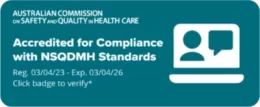Report a media item to StigmaWatch
2016 Stigma Files • 2015 Stigma Files • Most popular Stigma Files
The media has an important role to play in influencing social attitudes towards and perceptions of mental illness - research shows that the media is an important source of information for many people about mental illness and suicide.
Good media reports about mental illness are responsible, accurate and balanced and help the community better understand the experience of mental illness. They encourage help-seeking behaviour by including additional information such as helpline numbers and websites for support services and often feature the perspective of people with mental illness, carers, mental health workers and organisations in the mental health sector.
It is a myth that suicide should not be reported. In fact, responsible reporting of suicide may reduce rates of incidence of suicide: a 1997 Australian study of reporting of Kurt Cobain’s suicide found that rates of suicide among 15 - 24 year olds fell during the month following reporting of Cobain’s death. Responsible reporting excludes details about method and location of suicide, and does not represent it in a sensational or glamorised way. It discusses the issue respectfully, considers known contributory factors and gives helpline contacts.
Examples of responsible reporting about mental illness
Destigmatises mental illness
Challenges myths and stereotypes associated with mental illness.
Raises awareness of the stigma against mental illness by highlighting examples within the media and community.
Challenges sensationalised media reporting linking mental illness with violence.
Humanises mental illness
Seeks to emphasise that mental illness is real, common and treatable.
Features stories about people with a mental illness playing an active role in the community.
Celebrates the achievements of people with a mental illness.
Emphasises the impact that mental illness has on family members, friends and carers.
Warns against judging people with mental illness.
Offers hope
Highlights stories about the successful management of mental illness.
Raises awareness about the challenges associated with managing a long-term mental illness.
Encourages people to seek help
Highlights the importance of recognising the early signs of mental illness.
Emphasises the importance of seeking treatment early.
Raises awareness about mental health services.
Encourages people in distress to seek help by providing helpline numbers.
Accuracy
Provides accurate information about mental illness and specific mental disorders.
Bases information on reliable sources such as recommended experts.
Allows people who have experienced mental illness to tell their own stories.
Highlights the complexity of mental illness. The term ‘mental illness’ covers a wide range of symptoms, conditions, and effects on people’s lives.
Responsible reporting about suicide
Accuracy
Seeks to report on suicide sensitively and accurately, providing balance and context.
Positioning of story
Discusses the underlying causes of suicide.
Provides context about the death and its relationship to mental illness and social issues.
Respectfully pays tribute to the life of the individual, rather than focussing on the death.
Highlights the long-term negative impact on family, friends and the community.
Language
Minimises use of the word ‘suicide’ in headlines.
Does not glamorise or normalise the act by not using terms such as ‘successful suicide’ and ‘suicide epidemic’.
Does not describe, display or photograph the location of method of suicide. If important to the story, discusses the method and location in general terms only.
Celebrity suicide
Does not glamorise celebrity suicide or prompt imitation suicide.








